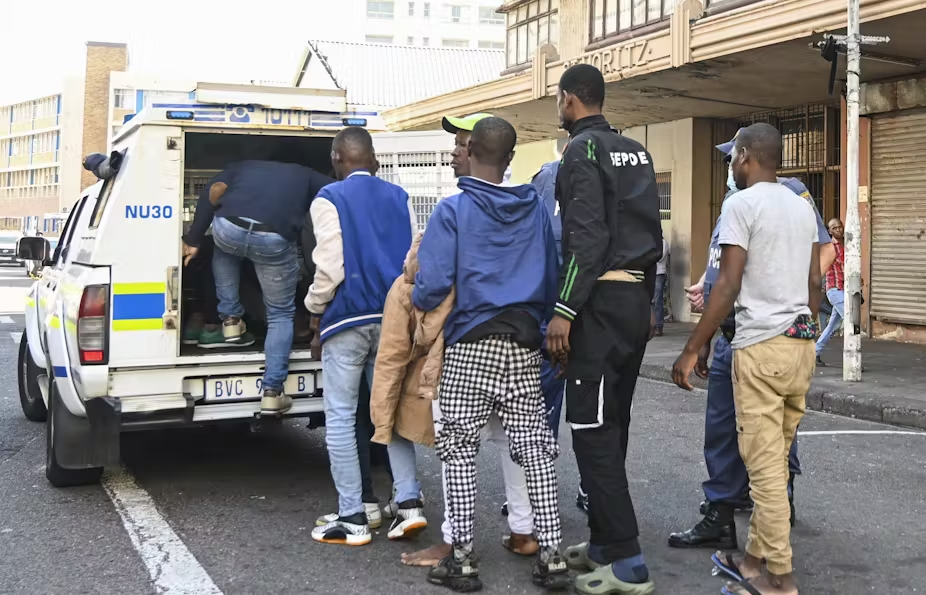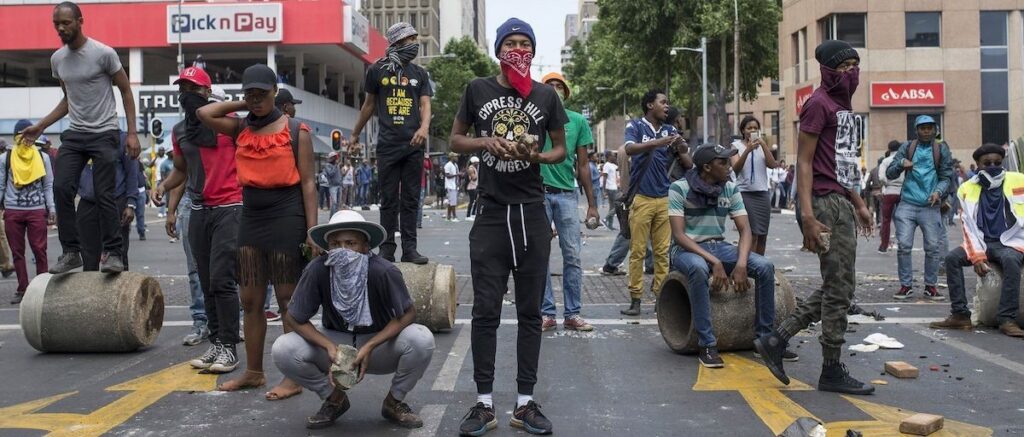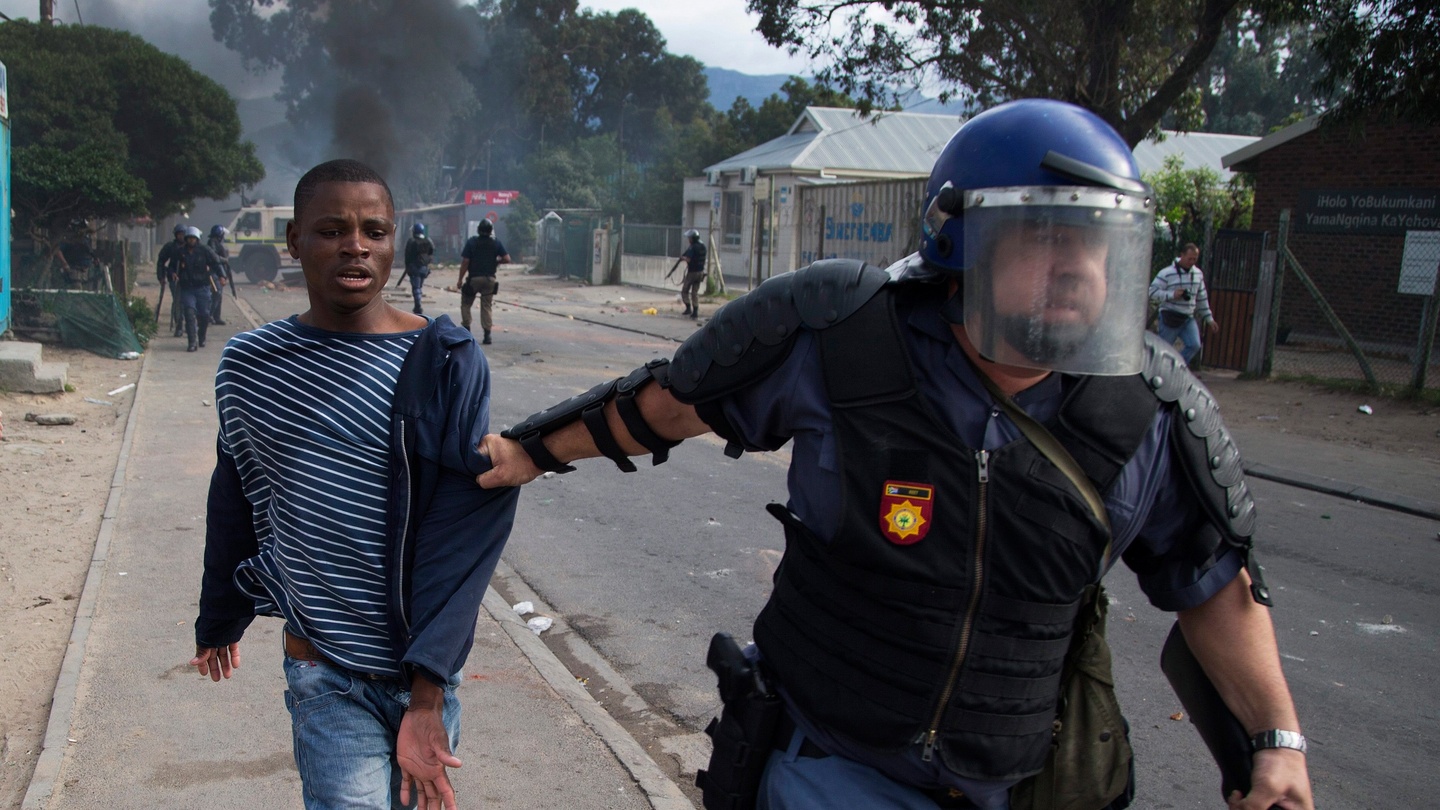Immigration really driving urban crime in South Africa? Discover the facts, debunk the myths and see what the data says about migrants and public safety.
In South Africa’s heated public debate, immigrants are commonly accused of the upsurge in urban crime. From discussions on social media to talks at political rallies, the argument that “foreigners are taking over the crime syndicates” has become a popular theme.
But to what degree this perception is supported by rigorous evidence and to what degree by fear, misinformation, and political scapegoating?
This paper looks into the nexus that links migration to urban crime in the South African context, involving a perusal of crime trends, police statistics, academic scholarship, and expert comments to answer one question: Is the common perception more of a myth than a statistical reality

Common Narrative: “Foreigners are Criminals”
In most communities in Gauteng, KwaZulu-Natal, and the Western Cape, migrants are often accused of the following:
• Trafficking drugs
• Trafficking humans
• Distributing illegal firearms
• Robbery, violent crime
• And perpetrating other crimes by running unregistered businesses.
Politicians have heightened and built on these claims. In 2022, then-Health Minister Joe Phaahla said, “Foreigners are putting pressure not only on hospitals but also on our security.”
Likewise, leaders of Operation Dudula say that undocumented foreigners are “responsible for the rise in crime in the townships.”
Data on hand
1. National crime statistics: no ethnic breakdown
The South African Police Service (SAPS) does not typically report the c rime statistics by nationality, so there is no official data to prove that migrants commit more crimes than locals. According to ISS Africa:
“Claims linking immigration to crime lack statistical support and are often politically motivated.”
• In 2023, foreign nationals constituted approximately 8% of the total prison population, as compared to 7-9% of the population (Stats SA, Department of Correctional Services).
• The majority of those foreign nationals who were in prison were there for immigration offenses, not violent or economic crimes.
3. Findings from the research
A study conducted by the African Centre for Migration & Society (ACMS) in 2020 discovered:
• Immigrants’ presence has no major correlation with violent crime rate in the cities.
• In most situations, low crime rates in areas were there more foreign-born people— due to stronger economic activities and community cohesions.
Chart: Foreigners in jail vs. the general population (2023)
Media vs. reality: the perception gap
Sensationalism in headlines
Only mentioning the nationality of the suspect in the media when he is a foreigner helps bias grow. For example:
• “Reported Nigerian ‘drug gang’ arrested around Johannesbur”
• “Illegal Zimbabwe immigrant caught red-handed in kidnapping”
It is assumed that the nationality of the locals, who account for the majority of the reported crimes, is seldom mentioned.

Expert opinion
According to Jean-Pierre Misago (ACMS),
“Using foreigners as scapegoats is misplaced. The real causes of rampant crime are stark inequality, shoddy police work, and active malfeasance; not immigration.”
Crimes against immigrants
An irony is that the victims more than the perpetuators are immigrants. • Xenophobic violence against them (2008, 2015, 2019)
• Unlawful raids and extortion against them
• And they do not report the crimes for fear of deportation
In 2022, Human Rights Watch reported, saying:
“Foreigners are often harassed by police and local gangs, with minimal legal recourse.”
What really drives urban crime?
South Africa has a very high crime rate because of:
• Youth unemployment (over 60%)
• Corruption in law enforcement and government
• Gang activity in cities
• Inequality and bad service delivery
None of these are special to — or caused by — immigration.
Inaccurate Comparisons: Crime vs. Immigration Offences
We must draw a clear line between:
• Immigration offences (e.g. visa overstay)
• Criminal acts (e.g. armed robbery)
It is both legally and ethically wrong to place all unauthorized immigrants under the label of “criminals”.
For a smart plan
To get info over fear, South Africa must:
✅ Better share data
The SAPS should be responsible for receiving and making sure that crime data is collected and published, compiling the nationality, context, and type of crime without any form of bias.
✅ Public education
Promote media literacy and civic education as a means to debunk xenophobic myths and disinformation.
✅ Real drivers of crime
Address the root causes: unemployment, social exclusion, police corruption and organised crime networks.
✅ Enhance community policing
Strengthen trust building between the immigrant community and the local law enforcement agencies for reporting as well as general cooperation.
Immigrants as the primary contributors to urban crime in South Africa is a proposition that the numbers do not support. Crime, though a problem of serious magnitude, should not be viewed through the easy scapegoating of immigrants. The real issues are systemic inequalities, poor policing, and political deviance.
A safe society can never be built on fear and division—it is about having evidence-based policies, inclusive communities, and equal rights for all.
FAQs
1. Do immigrants account for the majority share of violent criminals in South Africa?
No, there is no statistical evidence for this.
2. Why do people associate immigrants with crime?
Due to media propaganda, political speeches and economic frustration.
3. Does being an undocumented immigrant mean one is a criminal at heart?
Not in criminal terms. It is an administrative crime to overstay or enter the country without proper documentation.
4. What percent of prisoners are foreign?
Approximately 8% – the majority for immigration-related reasons.
5. Participation of immigrants in crime
Yes, like any population – but not a majority of the statistics on crime.
6. Foreign-run drug syndicates?
Yes, some, but the larger portion of the drug operations in SA is on the ‘local’ or ‘network mixed’ side.
7. What will actually make the public safer?
Better policing, youth employment, criminal justice reform, and involvement by communities — not mass deportations.
